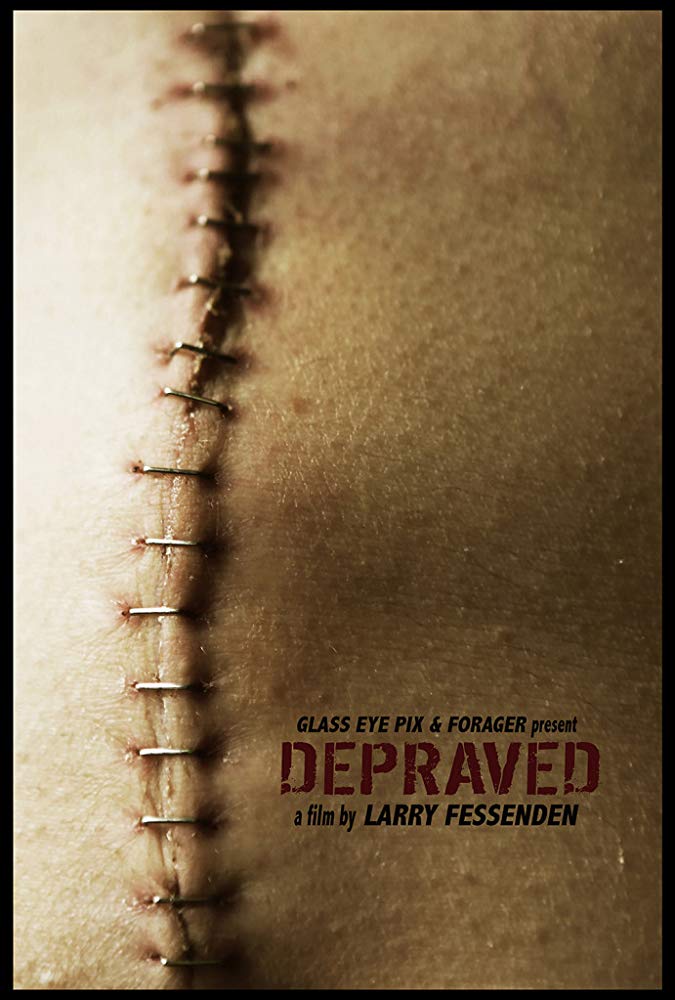
I had interviewed Larry Fessenden a few years back when he mentioned that he was wanting to make a new take on Mary Shelly’s Frankenstein. I was immediately intrigued by this idea. He had already taken on vampire lore with his excellent and still underrated HABIT. Before that, his first film NO
I chose not to immediately write this review. After finishing the preview, I knew this is a film that would resonate, so I let it rattle around in my memory for a week.
If you are unfamiliar with Larry Fessenden, he makes films that are on the surface a story of the macabre, and underneath a subversive telling of a social or philosophical concern, whether it be about the ethical treatment of animals and nature, like in NO TELLING or THE LAST WINTER, or the perils of identity through addiction like HABIT. His films bite deeper into the flesh and will stick with you. His newest certainly has done that with me.
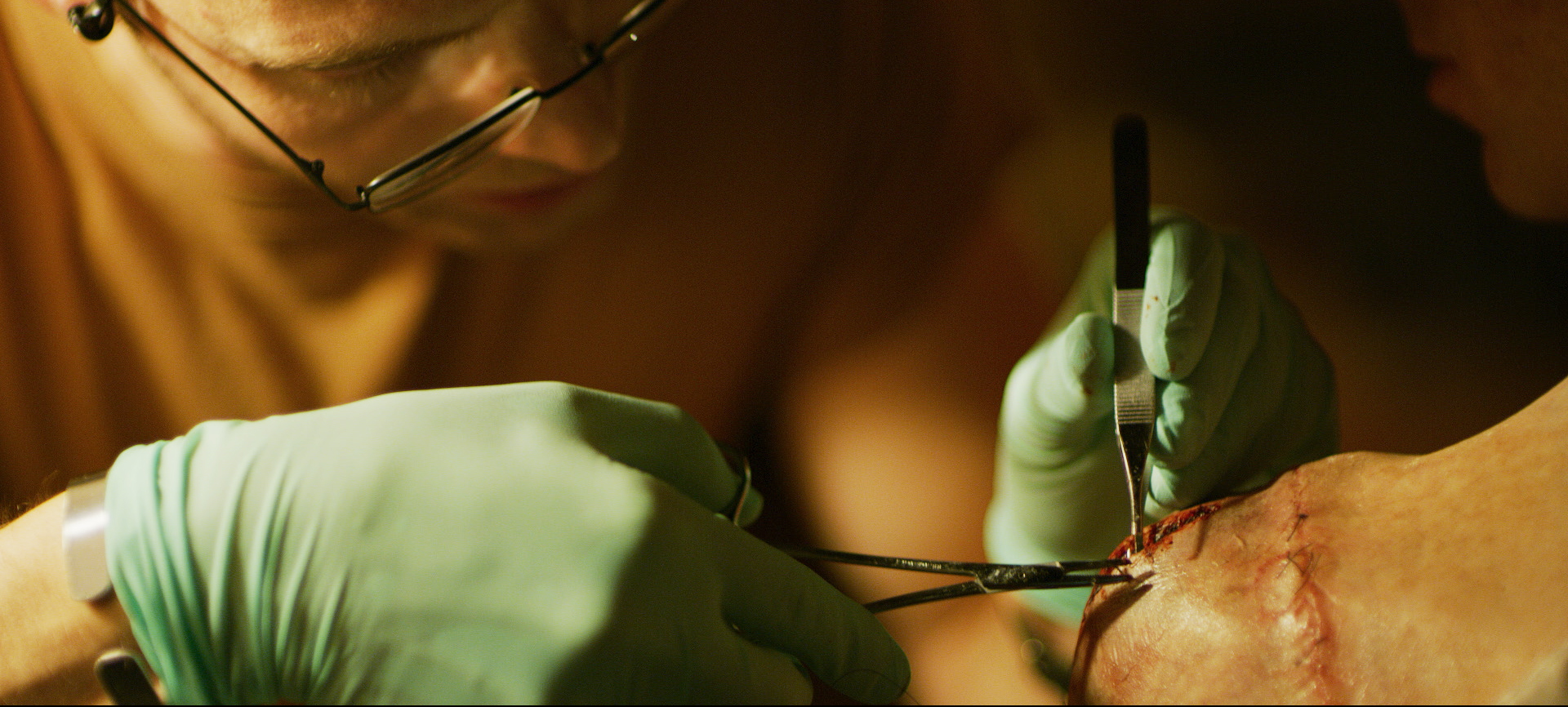
On the surface of DEPRAVED, we have a Frankenstein re-telling about a young man named Alex (Owen Campbell) who is murdered on the streets of Brooklyn after an argument with his girlfriend Lucy (Chloe Levine). He is then brought back to life in the body of another man, much bigger in physical stature named Adam (Alex Breaux). This procedure was done by Henry (David Call), a fringe scientist and former army medic suffering from PTSD after several tours in the Middle East. The main reason for this reincarnation is the testing of a new pharmaceutical drug, RapX, which the financiers of the experiment want to streamline into doctors’ offices everywhere. The main financier, an old-money rich kid named Polidori (Joshua Leonard), is the film’s main antagonist. He is, unfortunately, one of the only things that holds the film back, by being a necessary, but, unconvincing plot device.
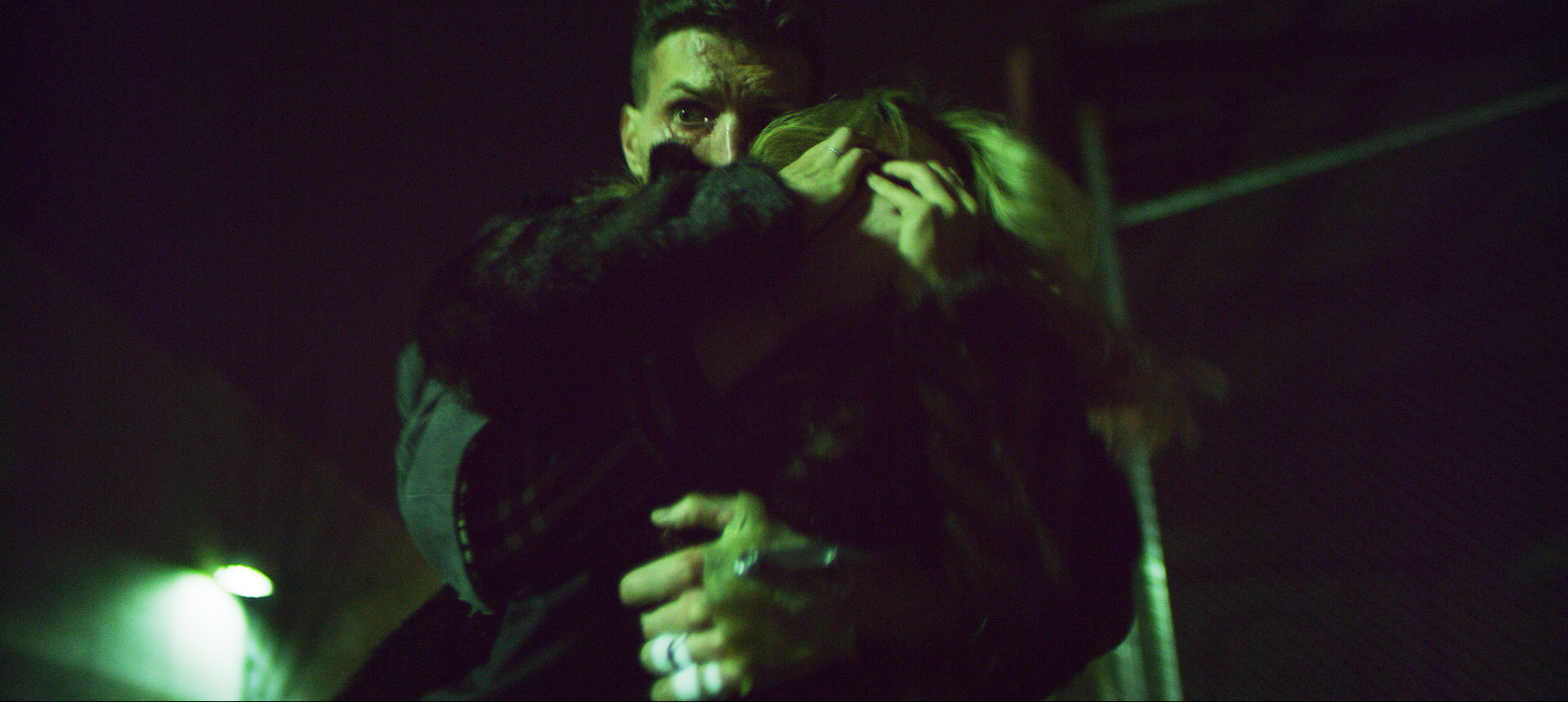
Polidori is an ethical monster–the kind whose moral compass must have broken off on a hooker while snorting cocaine off her back. He, unfortunately, feels like a character out of a simpler movie than this. I just don’t believe this man would be part of such a successful scientific exploration with his destructive hubris. Despite this, Fessenden does use Polidori in one of the films best sequences, where Adam is taken out on the town by Polidori and showed a night of debauchery that bounces strongly against Adam’s innocence and susceptibility. After this depravity, Adam now begins to question himself, his creators, and reflects of his past life and world he has been brought back into. Deeply troubled and curious, Adam goes on the lamb to do some soul searching and possibly find a companion in a world of grime, confusion and lost echoes.
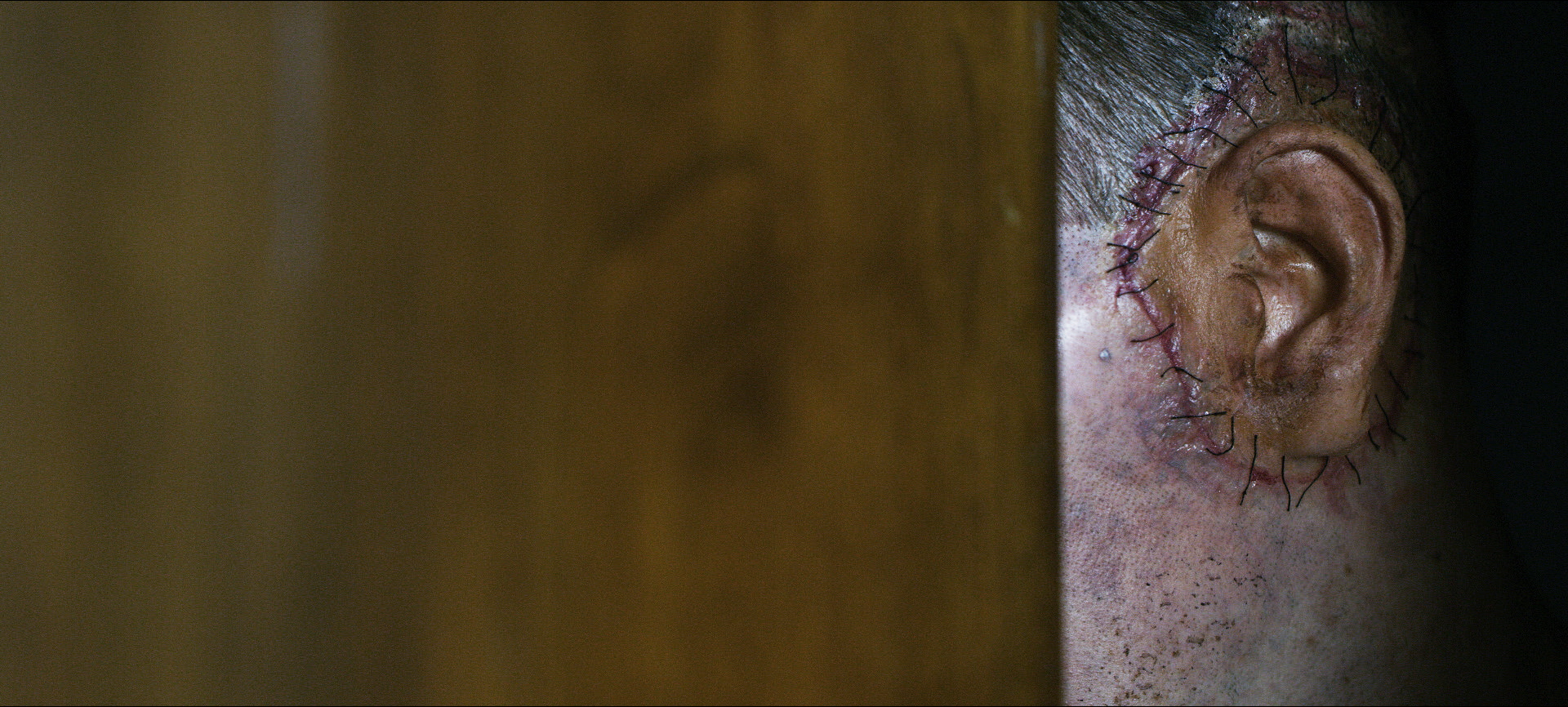
The film ultimately works. This is mainly due to Fessenden’s clear-headed direction, central strong performances and well-paced segments of introspection that create a much deeper film than we have seen with other attempts at the Man and Monster/Monster and Man Complex. The film also benefits from being a very low budget Frankenstein in itself. The lack of slick polish that graces so many Blumhouse horror type films is wonderfully not present here. Scenes filmed on vintage hazy lenses, uneasy dolly tracking and homemade set design all lend to build a very convincing world of a mad scientist bringing back the dead in his Brooklyn loft. Everything looks as though is should be in the dirty and patchworked world we are presented.
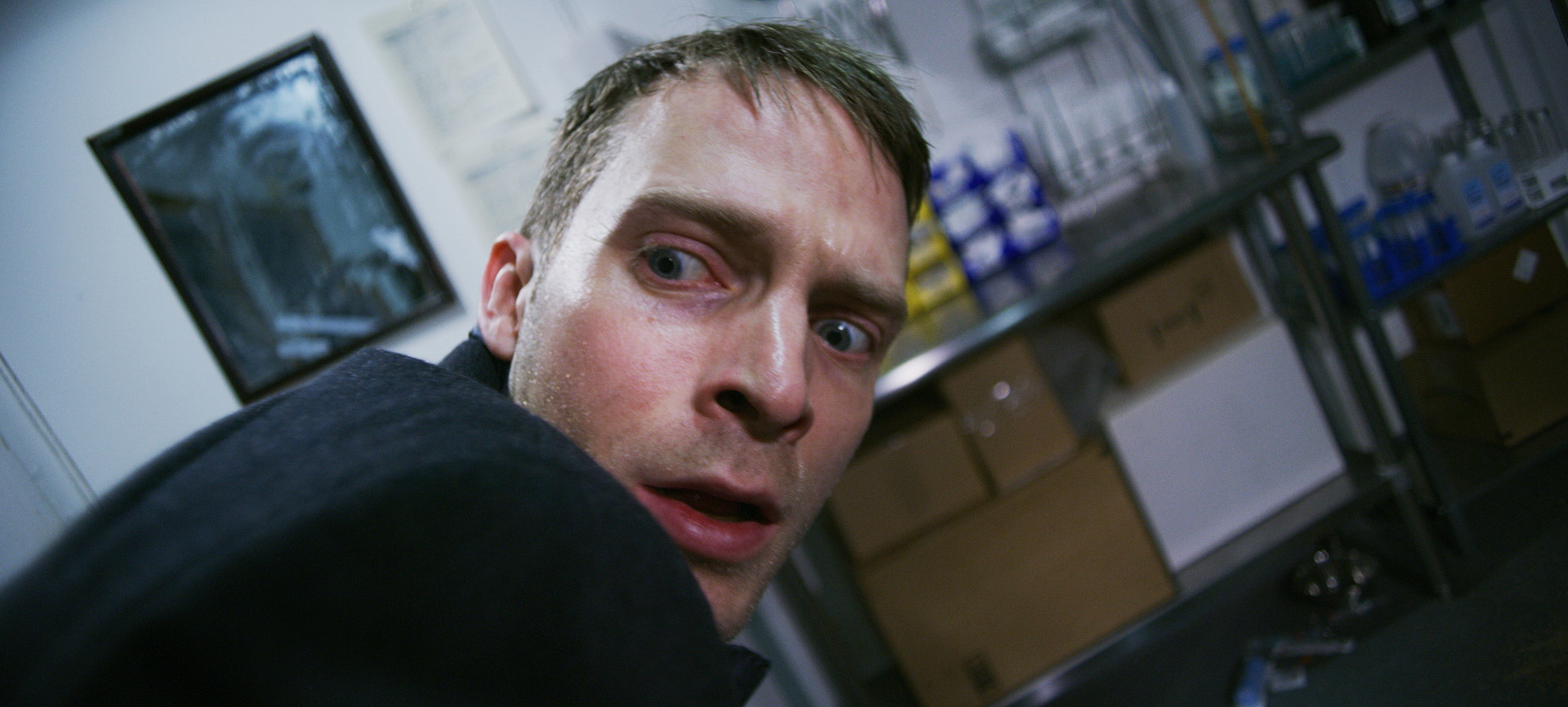
This is a film of big ideas. We are presented with a subtext about man, identity, abuse of technology, pharmaceuticals and the nature of memory, much like in Shelly’s novel. This is, in fact, one of the most respectful adaptations of Shelly’s work ever committed to film. Most horror fans will enjoy Fessenden’s newest. There may be some that find the lack of sensationalism and the methodical pacing to be boring. I found myself ultimately charmed and moved by the film. This is another strong chapter from one of horror cinema’s most underrated and consistent filmmakers. Let’s just hope we don’t have to wait another 6 years for Fessenden’s next helming.




